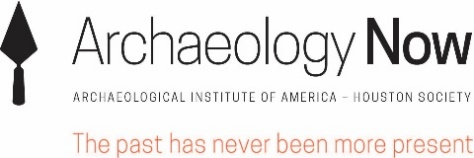
Launch event for the Ukrainian Project to discover Ukrainian stories, culture and ancient history
WHAT: Lecture: Ukraine: An Ancient Gateway to Europe
Ukraine is a unique and ancient region with a culture formed by sweeping movements of people from the east to the west and known as the “Gateway to Europe.” Ukraine’s stories, culture, and history are featured, opening Archaeology Now’s Ukrainian Project.
The featured speaker is Dr. Alan Rabinowitz, Associate Professor in the Department of Classics and Assistant Director of the Institute of Classical Archaeology at The University of Texas at Austin. Learn about the earliest history of Ukraine and how occurrences in the early 20th century helped bring about a sense of Ukrainian identity and set the stage for the warfare the country is experiencing today. Archaeology leads the way in identifying the remnants of past cultures while also working to help preserve a past for a future.
The talk will provide an overview of Ukraine’s past, with a particular focus on the ancient and medieval contact zone of the steppe and will also discuss the relationship between this long history and modern Ukraine’s threatened national identity.
The Ukrainian Project also features a tour on Apr. 6 of Pokrova Ukrainian Catholic Church to learn how churches are pivotal to the preservation of Ukrainian culture in a diaspora community. On May 19 is Culinary Adventure: Culinary Heritage In Baba’s Kitchen at Foreign Grill in the Conservatory, led by chefs Irina Mamataliyev and Monica Pope, involving borscht, pierogis and vodka.
Panel Discussion: Ukraine Foreign Policy and Diplomacy
Panelists: former University of St. Thomas Professor Richard Sindelar, now Research Fellow at the Baker Institute at Rice University; Dr. Tuba Bilgic, Associate Professor of International Studies, University of St. Thomas; and Dr. Ursula Muenzel, International Business Consultant and Intercultural Coach and Speaker. The moderator is Professor Eric Botts, Assistant Professor of International Studies, University of St. Thomas. Panelists will discuss the current situation in Ukraine to include the European perspective, U.S. policy and its evolution since the start of the current conflict, and the global response.
WHEN: Wednesday, March 20, 2024
Reception is 6 p.m. – 7 p.m., lecture is 7 p.m. – 8 p.m.; panel discussion is 8 p.m. – 9 p.m.
WHERE: Jones Hall at The University of St. Thomas
3910 Yoakum Blvd., Houston, TX 77006
COST: Admission is free; parking is $10 at Moran Parking Center.
MORE: The complex archaeology of present-day Ukraine goes back to the earliest periods of human history. The area has always been a place where different cultural groups met and exchanged ideas – a dynamic zone of experimentation and synthesis. The peoples who settled Ukraine found novel ways to build communities and develop shared identities, including mammoth-bone houses of the Upper Paleolithic, Greek colonies of the Black Sea coast, the Scythian nomad empire of the steppe, Byzantine cities, and the territories of the Kyivan Rus’.
For information: Visit www.archaeologynow.org or click here for more details.
# # #
Link to high resolution photos here
Photo credits: Various (found in file extensions)
About Archaeology Now
Archaeology Now is the Houston-based affiliate of a nationwide organization—the Archaeological Institute of America. We were founded in 1967 by Dominique De Menil, Philip Oliver Smith, and Walter Widrig. Today, we present an ambitious series of events for the public focused on our many stories over time. We invite the public to join us for a journey of discovery of our human story.
Archaeology Now collaborates with diverse communities to showcase the stories of humanity through the lens of archaeology. Through our programming we tell the stories of those who have come before us; we find common links to our ancestors; we acknowledge the basic dignity of all humankind, and we advance mutual understanding among both a local Houston and a global diverse community.

